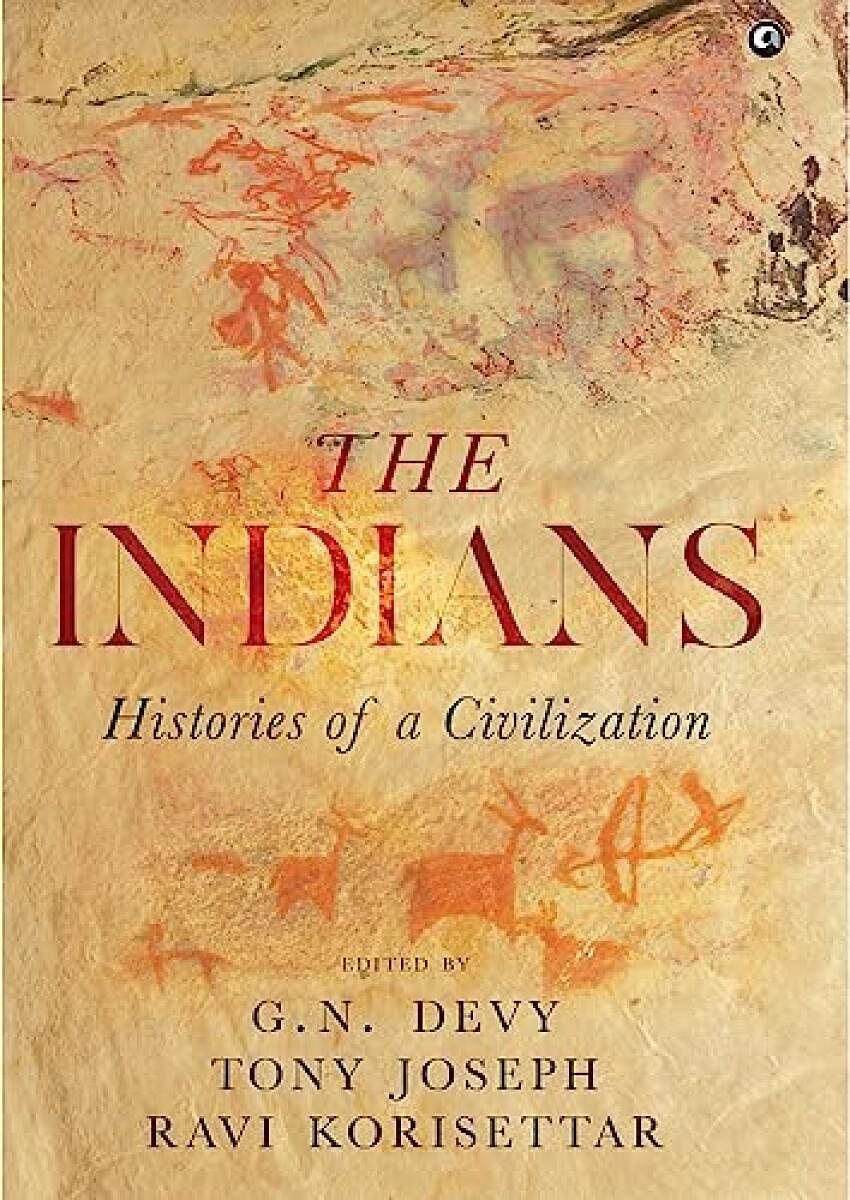
A new book traces the evolution of India over 12,000 years — from the last Ice Age to the 21st century.
It features 101 essays by 90 scholars from across disciplines, and was launched at Bangalore International Centre in Domlur on Monday.
Titled ‘The Indians — Histories of a Civilization’, it is edited by historian and cultural activist GN Devy, journalist and the author of ‘Early Indians’ Tony Joseph, and archaeologist Ravi Korisettar.
The 620-page book has brought together historians, linguists, geneticists, archaeologists, environmentalists, philosophers, theologists, and social science and cultural studies experts to share their findings about India.
There are international contributors as well, such as linguist Hans Henrich Hock whose Sanskrit, Devy says, is as good as the Sanskrit of a pandit in India. Hock has authored an essay on the Indo-European background of Sanskrit.
For Bengaluru-based Devy, who initiated the project and was joined by Joseph and Korisettar in due course, the book was a “necessary” undertaking.
Firstly, there didn’t exist a comprehensive report on the past of an ancient, continuously populated civilisation like India, he says. Secondly, he argues, “an aspirational society can move forward only if it receives light and guidance from its past”.
The book originated with the idea of demonstrating the region’s pluralistic past, says Devy. “In 2017, the government formed a committee to prepare a report on the history of India. It did not feature anybody from south India or the north-east, no woman, no Muslim, no Sikh, no Parsi, no Buddhist, no tribal, nobody from the scheduled castes. If such a committee prepared the report, I wouldn’t be balanced, I thought,” he says.
The volume covers the evolution of the early ‘Indian’ population, the emergence of different civilisations through the domestication of plants and animals, and the birth of languages and philosophies of ancient India, as also the colonialism years and the march towards federalism.
Devi has penned two essays, reflecting on the caste system and the Bhakti movement. “The caste system is not a socially-embedded arrangement in Europe, America or Australia, so what generated it in India? That called for scrutiny. Then, the Bhakti movement spread from Assam to Kerala in 700 years. Why? Was it a movement against modernity? A rebellion against feudalism? A call for equality?” he wonders.
The authors are “surprised by the tremendous response” coming their way — people are asking for 10 to 50 copies, and Devy has been invited to talk about the book at universities in Michigan, Chicago, Leeds, London and Cambridge.
Plans are afoot to translate the book into Marathi, Hindi, Malayalam and Gujarati, and get an overseas publisher.
The Indians: Histories of a Civilization, Aleph, Rs 1,299